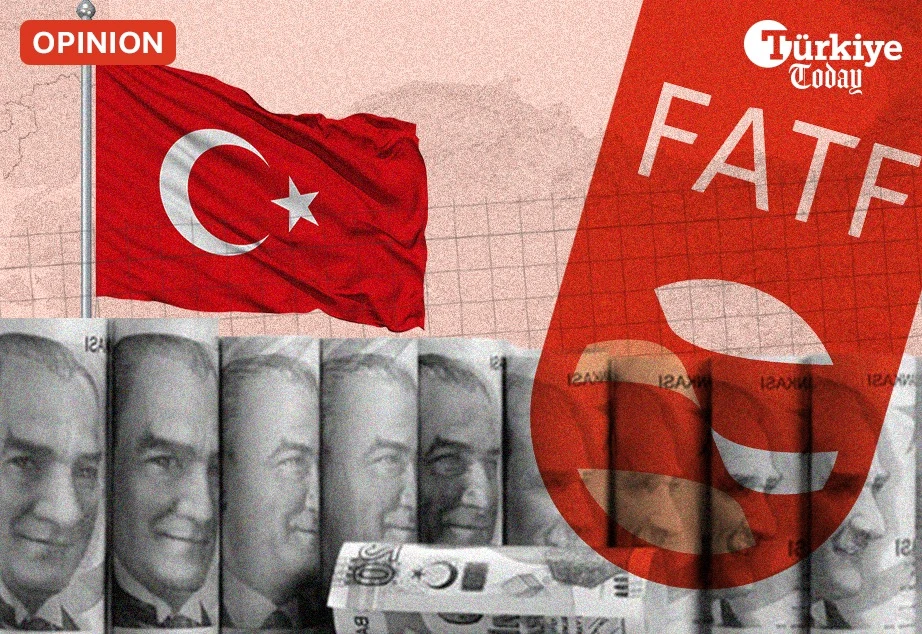Beginning of a new chapter: Türkiye exits FATF grey list after 3 years

The global financial crimes watchdog Financial Action Task Force (FATF) on Friday removed Türkiye from its “grey list” following the country’s compliance with global financial standards.
Türkiye Today editorial staff asked finance expert Omer Faruk Bingol about the implications of this development and what it means for Türkiye’s economic future.
‘Permanent’ foreign direct investment
Türkiye has exited the category of countries placed on the grey list by the Organization for Economic Co-operation and Development (OECD). This move provides Türkiye with significant advantages in terms of global reputation, risk premium, and attracting foreign capital, positioning the country as a reliable destination for foreign investors once again.
In the past five years, Türkiye has attracted $31.4 billion in direct foreign investment, and with this new chapter, it is expected to host increasing amounts of “permanent” investments in the future.
Türkiye received the good news it had been waiting for months regarding its exit from the grey list. After approximately 32 months on the grey list, Türkiye fulfilled all 40 required standards, marking a significant achievement. Finance Minister Mehmet Simsek shared the good news with a “We did it” post on social media platform X.
Reforms bore fruit
The FATF included Türkiye on the grey list during its meeting in October 2021. Nearly two years and eight months have passed since. Today’s FATF General Assembly brought good news for Türkiye. The legal regulations and structural reforms implemented over the past months have paid off.
Impact on Türkiye
While not the only factor, countries on the grey list often experience drawbacks such as damage to their global reputation, higher risk premiums, and challenges in attracting foreign investment. Türkiye has now overcome these negative impacts.
Impact on Borsa Istanbul
The effects of exiting the grey list are also expected to be reflected in Borsa Istanbul. In the last six weeks leading up to June 21 this year, foreign investors sold approximately $2 billion worth of shares on Borsa Istanbul. However, in the last 13 weeks, foreign investors purchased around $9 billion worth of Turkish bonds. This interest in bonds is expected to extend to Borsa Istanbul in the medium and long term. Istanbul’s stock market showed a good performance, rising by approximately 45% in the first six months of 2024.
Analysts expect Borsa Istanbul to reach around 13,000 points by the end of the year, with the acceleration of the normalization process in the country’s economy, the establishment of a downward trend in inflation, and the beginning of interest rate easing. Additionally, new rating upgrades from the three major rating agencies are expected in the second half of the year, which could act as a catalyst for Istanbul’s stock market.
Positive developments
Türkiye has already started attracting billions of dollars in foreign capital, thanks to the rational policies it has implemented in recent months. The Central Depositry System risk premium, which tested 700 last May, fell to the 250 range this year. Subsequently, Fitch and S&P upgraded their ratings. The net reserves of the Central Bank of the Republic of Türkiye (excluding swaps) turned positive for the first time in years. A significant decline in inflation is also expected in the upcoming period.
A new chapter begins
With the addition of “exiting the grey list” to all these developments, a stronger Türkiye narrative has emerged. Next month, a rating upgrade from rating agency Moody’s is also highly likely. From now on, Türkiye has opened a new chapter, especially in terms of “direct foreign investments” and “long-term foreign capital inflows.”
Direct investments in last 5 years
Despite being on a financial watchlist and the global pandemic, Türkiye attracted significant foreign investment between 2019 and 2023. The country raked in approximately $31.4 billion in direct investments from abroad during this period. Europe was the top investor, contributing $21.3 billion, followed by Asia ($6.86 billion) and the Middle East ($4.37 billion).
The trend continued in January of this year, with Türkiye receiving approximately $400 million in direct investment. The wholesale and retail trade sector was the biggest beneficiary, attracting $7.65 billion in foreign investment between 2019 and 2023. The finance and insurance sector came in second with $4.86 billion.
What is the grey list?
The OECD established the FATF in 1989 to prevent money laundering and the financing of activities such as terrorism.
This body categorizes countries it deems insufficient in taking necessary measures into a “grey list” and closely monitors them. The FATF General Assembly, which meets three times a year, announces the countries entering and exiting the grey list.



